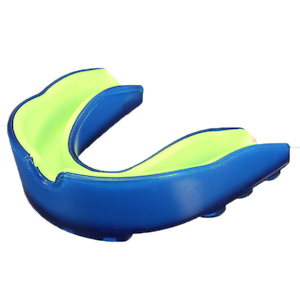Wear Mouth Guards to Prevent Sports Injuries
Did you know that each year more than five million teeth are knocked out (avulsed)? And, many of the occurrences are during sports activities that come at the cost of replacement, which often reaches up to $500 million every year! So, what do we do to protect our teeth and mouths while participating in our favorite sport? We utilize mouth guards.
In the past 10 years, research has shown that during athletic performance—whether a weekend warrior or professional athlete—the use of a specifically designed sports mouth guard, similar to an oral appliance for treating sleep apnea, can:
- Increase strength up to 20%
- Enhance aerobic endurance
- Reduce stress-related hormone levels following exercise
Let’s take a look at injury statistics and why mouth guards are important to wear while participating in various sporting activities.



